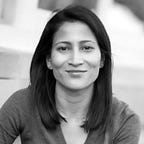On reading books
A personal note on Kindle vs. paper books
I read a lot. Always have. Growing up in a lower middle class family in India, I didn’t get to buy new clothes unless it was for birthdays and special occasions (thank goodness for school uniforms!) and only rarely got new toys (we mostly played outside anyway.) The only “allowance” I got was for books. Every month my parents would take my sister and I to the local bookstore where we could each buy a book. Any book. No budget cap. I cherished these bookstore trips like some kids look forward to Disneyland. In 4th grade we were issued library cards for our school library. I had made it to Disneyland :-)
My reading habit stuck with me. I read approximately one book a week. Naturally when the Kindle first launched I was enthralled. Here is a device where I can “carry” tons of books without dealing with their weight, never be without reading material on a long trip and switch from a non-fiction to a fiction or biography without having to cart around three books with me. What’s not to love?
But after 2 years into reading mainly on Kindles, I found myself some time in 2012 going back to paperbacks more and more often. (I don’t like hardcovers; all that extra weight and cumbersome handling, not to mention expense.) I am not exactly sure why I went back to paper books but as soon as I did, it was really difficult to go back to the Kindle again. It just didn’t feel the same. I realized I loved the feel of paper, the smell of books, the clear visual indication of progress from the book lying open face down, sharing books with friends, and going back to a book I read a long time ago that I notice on the bookshelf.
I also noticed I read less, not more, when reading mainly on the Kindle. I am not sure why this is. It may be the out-of-sight-out-of-mind effect? The stack of unread paperbacks on my nightstand is a constant reminder of all the goodness coming my way while the Kindle library is invisible. (Some people think the opposite and I can see why.)
Oddly however, I did not give up Kindle books because around this time the iPad mini launched which is quite possibly my most favorite gadget of all time. I found reading in the Kindle app on my iPad mini a much better experience in most circumstances than the Kindle device. (Except of course in sunlight. But I read primarily before bed, in coffee shops and some times on flights. So the sunlight thing really wasn’t an issue.) This was especially true for non-fiction; I find reading non-fiction on the iPad app a superior experience than the Kindle device and even than paper books. I can skim sections I find less interesting, highlight, add notes and references to come back to, jump around non-linearly, save information out to Evernote etc. These are things I do primarily for non-fiction that I would never do with fiction.
With fiction and most biographies, I like immersing myself into the book, being completely transported to another place and time and losing myself in the characters’ lives and their stories. As a teenager I remember being so deep in this trance that I couldn’t hear my mom shouting my name from 4 ft away. This is a feeling I still can’t get from ebooks.
Besides this difference in reading style, another reason I like buying non-fiction books digitally is their transient nature: many non-fiction books apply to current events. A lot of them can feel terribly outdated just a year after publication. (There are exceptions of course.) So I prefer to treat non-fiction books essentially as longform web articles: save what I like to Evernote and move on.
So my reading pattern has settled into this: fiction and biographies on paper and most non-fiction in Kindle app on iPad mini (now with retina.) My Kindle device mostly just sits fully charged next to my bed these days.
Where do you land on the Kindle vs. paper books vs. ebooks on tablet spectrum?
